Many people underestimate the importance of water to the body. Many people think it is just a "mom's tale," like you need to drink your milk. What is even more alarming is that even among the most experienced athletes—and this includes weightlifters, strongmen, and bodybuilders—there is a huge gap in knowledge regarding the understanding as to why proper hydration is important for health, and for competitive success.
Water Is The Single Most Critical Nutrient
The human brain is composed of 95% water; blood is 82% water; the lungs are nearly 90% water. Water is also the single most critical nutrient for health, growth, and development. It is not only the most important nutrient in the body, but also the most abundant. Water is critical to the balance of all the body's systems, including the brain, heart, lungs, kidneys and muscles.
How important is this balance? A 2% drop in body water can cause a small but critical shrinkage of the brain, which can impair neuromuscular coordination, decrease concentration, and slow thinking. Dehydration can also reduce endurance, decrease strength, cause cramping, and slow muscular response.
Mild dehydration is also one of the most common causes of daytime fatigue. How common a problem is this in the United States? Estimates are that 75% of Americans have mild, chronic dehydration. This is alarming since proper hydration is required for maintaining healthy blood flow, proper kidney function, proper sodium/potassium /electrolyte balance and proper digestive functions.
Health Benefits

Water has many health benefits. Health benefits include the following.
Healthier Skin
Ensuring that you are properly hydrated will prove to be a far better solution to preventing or decreasing wrinkles than the many expensive and in most cases barely effective products being marketing to the public.
Healthier Teeth and Bones
Water makes teeth and bone stronger. The additional fluoride added to the water supply provides extra strength and bone density to teeth and bones.
Healthier Joints
Water is extremely important to the joints. Synovial fluid contains water; if you become dehydrated, less synovial fluid is available to protect the joints.
This is dangerous to a bodybuilder since they sweat (lose fluids) and put great stresses on their joints through intense workouts.
Healthier Mind and Body
Water is essential for nutrient absorption and many chemical reactions in the body for overall health, including proper brain function and improvements in memory.
Healthier Digestive System
Water helps improve the digestive process and is imperative in maintaining a healthy urinary tract and digestive system.
Water is important to properly metabolize food. Drinking sufficient amounts of water will help reduce constipation.
Drinking sufficient amounts of water will help the body process and transport nutrients and excrete any waste products once they are metabolized.
This is important for bodybuilders who often increase daily water requirements because they consume much larger amounts of food, vitamins, and supplements. Exercise increases the amount of water lost through sweat (working out) and encourages a high metabolism (caused by increased exercise and more lean body mass).
Helpful H2O!
Reduces Fatigue
Although water does not provide energy in the same way carbohydrates and fat do, it plays an important role in energy transformation.
Water is the medium in which all energy reactions take place. If you become dehydrated you will become lethargic, may experience cramping, and endurance and strength performance will suffer. Athletes who become dehydrated often find reduced performance in the days following.
Helps In Weight Loss
Water can suppress appetite naturally and increases the body's ability to metabolize stored fat.
Studies have shown that a decrease in water intake will cause fat deposits to increase, while an increase in water intake can actually reduce fat deposits.
This is thought to occur because a reduction in water decreases the efficiency of the kidneys, which results in some kidney functions being shunted to the liver.
Since one of the liver's primary functions is to metabolize stored fat into usable energy for the body, it metabolizes less fat while performing functions normally performed by the kidneys. This results in less stored fat burned, and a reduction in weight loss.
Reduces Fluid Retention
The body perceives dehydration as a threat to survival and begins to hold on to every drop.Water is stored in extracellular spaces (outside the cell) which can result in swollen extremities (feet, legs, and hands).
Diuretics offer a temporary solution, but may cause more harm than good if abused. Why? Diuretics will cause the elimination of water, along with many essential nutrients.
Also the body will perceive this conditioning as a threat and replace the lost water at the first opportunity; this causes bloating and fluid retention once again. Regularly drinking plenty of water will eliminate this problem.
Helps Build Muscle
Water is needed to transport nutrients to your cells and transport waste out of the body. Water helps form the structures of protein and glycogen.
In order to move and flex your muscles, you need water. If your body is dehydrated, your muscles will be deprived of electrolytes and cramp. Since muscles are controlled by nerves, without the proper water and electrolyte balance, muscle strength and control will also be impaired.
It is essential that you stay hydrated if you want to build muscle and experience optimal performance in the gym.
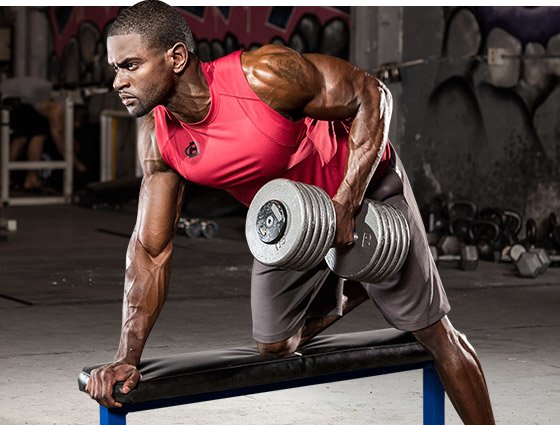
Increases Muscle Tone
Muscles are made primarily of water. Dehydration can prevent muscles from properly contracting, reducing muscle tone.
Increasing water intake will help prevent muscle cramping, improve the strength of muscle contractions and quicken muscle response. Preventing dehydration will also help prevent sagging skin, since water will fill out the muscles, resulting in clear, healthy, and resilient skin.
Reduces Risk Of Disease
Studies have shown that increasing daily water intake has shown to decrease the risk of colon cancer by 45%, reduce the risk of bladder cancer by 50%, and it may potentially reduce the risk of breast cancer. It is also believed that water may prevent kidney stones and urinary tract infections.
Other Known Benefits
Water also aids circulation, and helps regulate the body's cooling system
Water and Athletic Performance
Many people are unaware of how water affects performance. Even being slightly dehydrated can cause poor performance, and it's often overlooked. Improper hydration can result in muscle cramping, decreased strength and reduced endurance, severely impeding athletic performance.
Fake Signal?
By the time you are thirsty, your body is already dehydrated. Once dehydrated endurance is diminished, strength can drop, and the effect can last into the following day(s). Instead of relying on a signal, drink water at regular intervals regardless if you're thirsty or not.
Common Causes of Water Loss
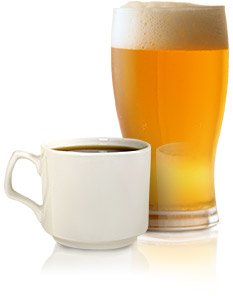
- Caffeine/alcohol consumption (diuretics)
- Increased Stress
- Hot environments; increased sweating
- Increased physical activity (water loss from sweating)
Other Reasons To Increase Water Intake
- Dieting
- Large food intake (common to bodybuilders)
- Increasing intake of vitamins, minerals. Increased sodium consumption; water intake may help the body excrete sodium and excess water
How Much Water is Lost During Normal Body Functioning?
The average amount of water lost per day includes:
- 16 ounces through respiration (average)
- 16 ounces through invisible perspiration (more if sweat is visible)
- 48 ounces through elimination
How Much Water Is Enough?
It is suggested that the average person—who is fairly inactive—requires a minimum of 8-to-12 cups of water per day. However, this amount is far too low for bodybuilders and other active people. Active people need much more to replace the fluid lost during exercise.
Depending on your size and perspiration rate, you lose about four cups of water per hour of exercise. If you are working out in a mild climate, you are probably losing about 1/2 gallon of water through perspiration.
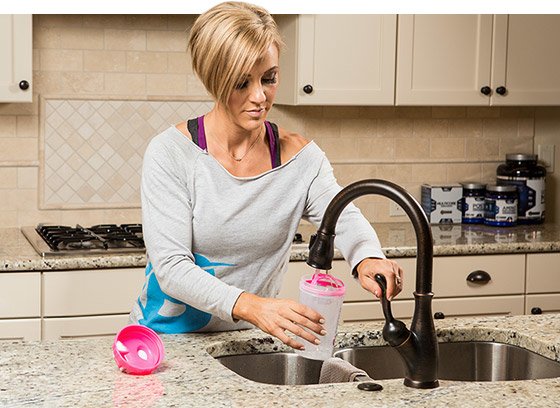
If you are working out in a hot climate, you can easily lose a gallon or more by the end of your workout and cardio session. Bodybuilders need even more water to assist with the metabolism of the additional food and supplements consumed.
Hints To Stay Hydrated
The easiest way to stay hydrated is to drink at least eight ounces each hour you're awake. When you are in the gym and thirsty it is easy to drink 4-to-8 times that amount if you bring a wide-mouth container with you for constant refilling.
Other hints: when you get in the car, go to a meeting, sit down to watch TV, or sit down to eat a meal, always have something to drink with you.
Key Points To Remember For Bodybuilders and Athletes
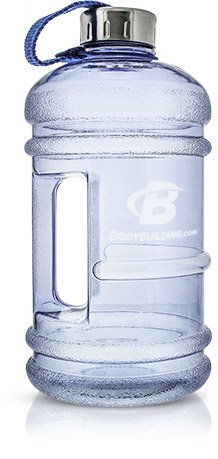
You need to drink water before during and immediately following exercise. If you don't replenish your fluid loss during exercise, you will tire and possible cramp. Performance will not be at your best.
You need to drink water immediately following exercise. If you don't replenish after exercise, your performance on the following days will suffer. Because you will be eating hard to gain muscle and be taking supplements as well I would suggest that you drink 1.5-to-3 gallons per day.
You need to drink water for health at regular intervals regardless if you're thirsty or not. By the time you are thirsty, you will already be dehydrated. It is essential that you stay hydrated if you want to build muscle and experience optimal performance in the gym.
Remember to drink at least 16 ounces of water after sleeping 8 hours. Sleep—especially in a dry and hot room—can rob your body of needed water. You can easily wake up in a dehydrated state after a long sleep under these conditions.
Drink more water when caffeine is consumed. Caffeine is a diuretic. Water intake should be increased when excess caffeine (also found in thermo products) is consumed.
Drink water cold when possible. Cold water absorbs into the system more quickly than warm water. Some limited evidence suggests that drinking cold water can actually help burn calories.
Drink at least 1 1/2 gallons per day, up to 3 gallons a day as needed. As a minimum, if you are an athlete or a bodybuilder, your needs will be much higher than the average adult. Increase your intake according to the factors that require increased water intake as noted above.
Do not forget the impact that supplements and medicine may have on hydration. Some supplements (and medicines) require that you take more water for them to be effective (and because some may be diuretics or cause harm if enough water is not consumed. No2 products, and some antibiotics are good examples.
Recommended For You
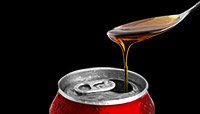
5 Nasty Food Additives You Must Avoid!
Ever catch yourself struggling to pronounce ingredients on food labels? Learn which ones should never make it to the checkout line.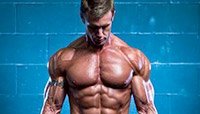
Eat Like A Beast! Brandan Fokken's Bulking Meal Plan
Here's what Brandan Fokken eats during his off-season. It's enough food to help him grow muscle, but not so much that he can't be photo-ready in 60 days!
